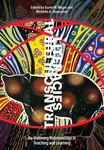We don’t actively support Internet Explorer
It appears that you are using Internet Explorer, which has been discontinued by Microsoft. Support has ended for versions older than 11, and as a result you may face security issues and other problems when using it.
We recommend upgrading to a newer browser such as Firefox, Google Chrome, or Edge for a much better experience across the web.
While this site may work with Explorer, we are not testing and verifying it, so you may run into some trouble or strange looking things.
Overview
Written to reflect a diverse Canada, Intercultural Communication is a practical guide that provides readers with effective approaches to intercultural communication theories and strategies. Situating readers in real, complex, and extraordinary intercultural scenarios, each chapter walks students through examples of how to manage conversations in appropriate and meaningful ways, while exploring how social and cultural practices might present common and uncommon implications. Key topics include verbal and non-verbal communication, cultural values, self-awareness, stereotypes, and digital communications. Packed with Canadian content, current examples, and tools for learning, this core text is ideal for students enrolled in intercultural communication or cross-cultural communication courses, including studies in business, education, social work, health care, and law enforcement.
FEATURES- includes 10 chapters covering diverse topics from culture and identity, to successful communication strategies and technology
- contains pedagogical features such as lists of figures, tables, text boxes, and pause-for-thought questions
- each chapter begins with an overview and learning objectives, and concludes with a chapter summary and review questions
Table of Contents
List of Figures
List of Tables
List of Text Boxes
List of Pause for Thought Questions
Preface
Introduction
Chapter 1: Are Intercultural Communication Skills Optional?
Chapter 2: Fundamentals of Communication
Chapter 3: History, Dominant Paradigm, and Foundational
Theories
Chapter 4: Continuing Issues and Evolving Theories
Chapter 5: Studying Intercultural Communication from a Canadian
Perspective
Chapter 6: The Roles of Identity in Intercultural Communication
Chapter 7: Canadian Legislation and International Mandates
Chapter 8: The Formation of Attitudes, Assumptions,
and Presumptions
Chapter 9: Biases, Stereotypes, Prejudices, and Discrimination
Chapter 10: A Multidisciplinary Strategy for Intercultural
Communication
Chapter 11: Reviewing the Argument Advocating Intercultural
Communication
Chapter 12: Beyond Our Borders—Intercultural Communication for a Global Context
Epilogue
Author Biographies












